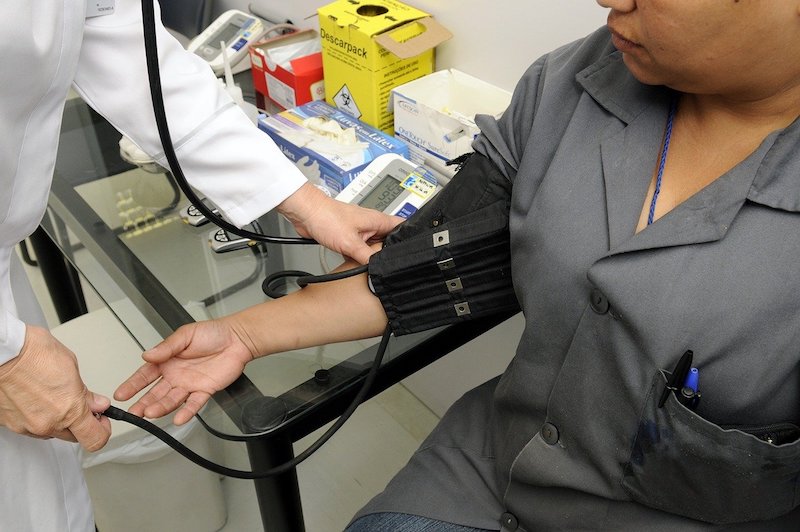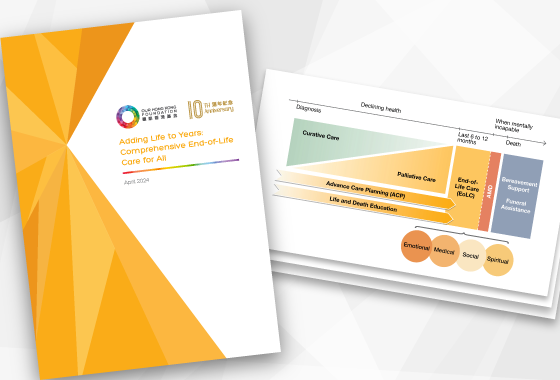City should focus on increasing the pace of primary healthcare development
This article appeared originally in the CHINADAILY on 11 February, 2022.
Authors: Pamela Tin, ahead of healthcare and social development and Nan Xia, assistant researcher at Our Hong Kong Foundation.

[Read related report - Strategic Purchasing: Enabling Health for All]
[Read related report - Fit for Purpose: A Health System for the 21st Century]
It has been two years since Hong Kong reported its first confirmed COVID-19 case in late January 2020. A series of public health measures, including social distancing and travel restrictions, have been adopted in an attempt to curb the spread of the virus while avoiding a complete lockdown of the city to minimize the adverse impact on citizens. These measures have allowed Hong Kong to maintain a relatively low COVID-19 incidence (latest data: approximately 1,702 cases per 1 million people) and mortality rate (latest data: around 28 cases per 1 million people) since the start of the pandemic compared with global counterparts. However, there is no time to be complacent.
Continuous mutations of the COVID-19 virus have been evident, and recently the world has been threatened by the rapid spread of the omicron variant. The scale of infections has been record-breaking, as reiterated in a recent World Health Organization report that recorded over 15 million newly reported COVID-19 cases in a week. Experts have warned against the effectiveness of key public health approaches that have been used to battle against COVID-19, including the reliance on “herd immunity”, which according to a recent article published by the world’s leading science journal, Nature, could be difficult to achieve amid the continuous discovery of new virus variants and observed infections even after vaccination. These new virus variants have made predicting the course of the global pandemic more complex than ever before and have forced governments across the globe to re-evaluate anti-pandemic strategies and health system sustainability.
As Hong Kong battles its fifth wave of the COVID-19 outbreak, the tightening of social distancing rules that has hampered Lunar New Year celebration spirits has contributed to a societal debate on anti-pandemic measures. Some have called for stricter anti-pandemic measures to achieve and maintain zero infections, while others are concerned that this strategy will negatively impact Hong Kong’s international standing and competitiveness as an international financial center. Either way, it is crucial for Hong Kong people to stand in unity to win the battle against COVID-19, and for this to happen, the special administrative region government must remain steadfast in its anti-pandemic strategy. While drawing lessons from experience gained from previous waves to formulate concrete public health plans, the government must implement timely and accurate risk communication for residents to better prepare to fight in unity. Importantly, attention should be given to the more-vulnerable population groups such as the elderly and chronic-disease patients to reduce the adverse impact of the pandemic on their livelihoods.
Public hospitals become increasingly challenged to handle the potential influx of patients affected by COVID-19 together with the annual influenza winter surge. With this, it is important and timely to revisit how best to coordinate care provision for our residents requiring medical attention that could be dealt with outside of hospital settings by a spectrum of providers, including private doctors and NGOs. This further underscores the urgency to focus attention on the development of a solid primary healthcare system for Hong Kong. Such a system would have primary care providers act as a “gatekeeper” and the first point of contact in the health system for early identification of potential COVID-19 cases that could prevent unnecessary outbreaks in the community. Such a system would also allow primary care providers to act as a “coach” for disseminating accurate and reliable information related to the COVID-19 pandemic to strengthen community prevention and public resilience against COVID-19. Importantly, such a system would help to cater to the needs of residents requiring medical attention, be it long-term chronic disease management or acute medical conditions that could be addressed outside of hospital settings, thus lifting a load off the public hospital system.
The Legislative Council has recently passed a motion on a “Ten-year plan for primary healthcare”, rekindling interest and focus on increasing the pace of primary healthcare development in Hong Kong. It is encouraging to see Legislative Council members provide constructive suggestions and showcase the utmost determination to push primary healthcare development forward in Hong Kong and gratifying to observe a positive response from the government. This positive response, however, must be matched with quick action that should include the announcement of the much-anticipated primary healthcare development blueprint for the city — a development that has been delayed for decades and is needed now more than ever.



